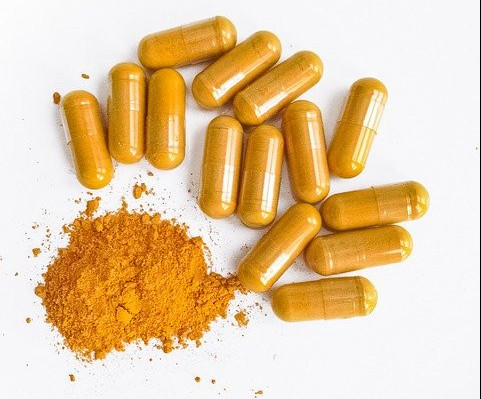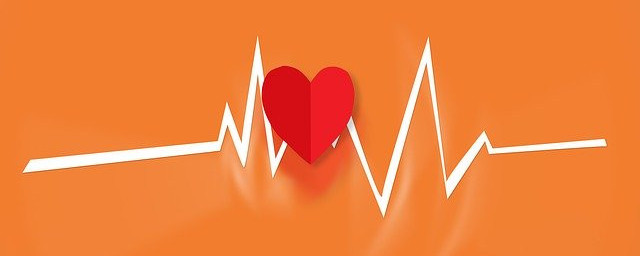You have found the right place to find out what the best vitamin for women over 50 is. Narrowing them down to which vitamins are most important can be difficult or even confusing.
Stick with me and I’ll give you the details for vitamins and supplements that are important for middle-aged women.
Best Vitamin; Women over 50
There are a ton of vitamins and supplements on the market today. Sometimes it can be a bit overwhelming when trying to figure out which ones are most important.
During my research for these, I’ve narrowed them down to 7 vitamins and nutrients that can help support women who are either reaching menopause or going through menopause, although there are many more.
Here’s my list:
#1 Turmeric Curcumin
Turmeric curcumin can supply health-related wellness benefits for joints, circulation, digestion, skin, memory, mood, and attention.
#2 Calcium
Calcium is not only needed for bones, but also for the health of our heart, muscles, and nerves.
#3 Vitamin D3
Vitamin D3 plays an important role in calcium absorption and immune function, making it an essential nutrient.
#4 Magnesium
Magnesium is an important mineral that like vitamin D3, plays a role in calcium absorption along with supporting stress and overall wellbeing.
#5 CoQ10
Coenzyme Q10 levels may lessen by the age of 50. CoQ10 supplements are great for increasing energy, mental clarity, and supporting cardiovascular health.
# 6 Omega-3 Fatty Acids
Long-chain omega-3 fatty acid intake has been associated with a reduced risk of several diseases, including coronary heart disease, age-related muscular degeneration and general health.
#7 Zinc
Zinc aids in nutrient absorption and digestion along with helping to build a strong immune system.
Continue on down the page and I’ll explain more about these necessary vitamins.
#1 Turmeric Curcumin
Curcumin is a substance derived from Turmeric and exceptional for women in their 50s for supporting healthy joints, circulation, digestion, skin, the list goes on. Curcumin is a powerful antioxidant that can have many effects on the body in a great way.
It has been discovered that high-absorption of turmeric curcumin supplements may also support memory, mood, and attention.
Turmeric comes from a plant found in India and other Southeast Asian countries, known as Curcuma Longa and often used in curry and mustard.
Turmeric powder comes from the dried root of the Curcuma Longa plant after it has been ground.
For women approaching their 50s, you may enjoy the skin health benefits. It has anti-inflammatory qualities that can target pores and calm the skin. It can also support the reduction of scarring and acne. For these reasons, it has even become a popular ingredient in natural face mask.
There are many ways to supplement with turmeric, from hot teas to adding ground turmeric to your foods and smoothies. I happen to love it in my hot tea. Turmeric and Ginger make a good combination for hot tea.
Something else about turmeric that might strike your interest; it’s also used for supporting weight loss.
#2 Calcium
Calcium is very important for supporting the skeletal bone structure. Over a period of 10 years the body replenishes a new skeleton by absorbing the old bone and creating new.
This process requires a lot of calcium so if you don’t get enough of it from the foods you eat, your body may not reproduce enough strong and healthy bones causing them to be more fragile.
The older we get, the more calcium is necessary because age causes a decrease in bone mass (bone density), especially for women after menopause.
Because of this, the body can become more vulnerable to injuries, among other concerns.
Believe it or not, calcium is not only needed for bones, but also for the health of our heart, muscles, and nerves.
To help with the absorption of calcium from supplements, you must also have enough vitamin D3, which I’ll talk about next.
#3 Vitamin D3
Vitamin D3 is a type of Vitamin D and helps the body absorb calcium and phosphorus. I don’t plan to discuss phosphorus, but it is important for building and keeping strong bones along with calcium and Vitamin D3. It also helps with your immune system, lessening your risk of flu viruses, colds, and cancer.
If you are outdoors a lot on sunny days, then you may have enough Vitamin D in your system since its made by the body when skin is exposed to sunlight. Although it’s important to keep in mind that sunscreen, protective clothing, dark skin, age and limited exposure to sunlight may prevent getting enough Vitamin D from the sun.
Vitamin D3 has also been known to decrease inflammation through its steroid-like properties.
Suffering from vitamin D deficiency can lead to decreased muscle strength and weakened bones making older adults more susceptible to osteoporotic fractures.
Supplementation of vitamin D will improve lower limb strength and reduce the risk of falling. Vitamin D affects fracture risk through its effect on bone metabolism and on falls risk.
#4 Magnesium
Magnesium is an important mineral for improving physical performance in older women and delaying age-related physical decline according to research.
Low magnesium levels may affect exercise performance. Magnesium helps with muscle and nerve function, steadies your heart rate, assists in immune system function and supports bone health. This important mineral also regulates the activity of other nutrients, including copper, zinc, potassium and vitamin D.
It is also known for regulating blood sugar, encouraging healthy blood pressure and helps with building protein.
Every organ in your body, especially the heart and kidneys, requires magnesium.
Middle-aged men and women should take magnesium supplements to help support their bone health.
A lead researcher, Dr. Setor Kunutsor stated;
“The findings are quite clear – there is a substantial reduction in risk of fractures. People taking magnesium should also take calcium and vitamin D for maximum effect and it is unlikely a magnesium supplement would have any effect on its own.”
Your primary care physician can do a screening to check your magnesium level and recommend the right dosage depending on how much you need. Men generally need more than women, but it’s important for both.
Most people get the magnesium they need from their diet as it is found in many foods. Some of these foods include green leafy vegetables, fish, meat, dairy, nuts, brown rice, and wholegrain bread.
Keep in mind, middle-aged adults struggle to absorb the amount the body needs and should probably consider supplementing after consulting with a primary care physician.
#5 CoQ10 – Convert Food into Energy
CoQ10 (Coenzyme Q10), is a naturally-occurring nutrient, but as we age, our bodies make less of it. Let’s face it, as we get older, our metabolism drops making us less energized.
CoQ10 plays a key role in converting food into energy. Taking CoQ10 supplements will also support cardiovascular health. There are two types of CoQ10 supplements available; ubiquinol and ubiquinone. Ubiquinol is the active form of CoQ10, which your body converts ubiquinone into ubiquinol.
Middle-aged adults would benefit most from ubiquinol, because as we age our bodies may lose the ability to make ubiquinol from ubiquinone.
Coenzyme Q10 is a compound found in food and supplements. Its primary benefit consists of producing energy in the cells. If you are trying to fight fatigue and boost your exercise performance, this supplement can definitely help.
Supplementing with CoQ10 is also another way to take advantage of the anti-aging benefits that this compound has to offer.
According to Dr. Axe, studies have shown that topical CoQ10 can provide antioxidant protection to the skin and may help reduce wrinkle depth and decrease sun damage.
#6 Omega-3 Fatty Acids
Getting your daily dose of omega-3 fatty acids is crucial when it comes to health and aging. There are many health benefits associated with taking omega-3 fatty acids, especially heart health, reducing joint pain, boost bone strength and enhance sleep quality.
If you want to stay healthy as you grow older, supplementing with omega-3 fatty acids can play a large role.
Rather than supplementing for omega-3 fatty acids, why not try to get it from the foods you eat? It’s important to aim towards non-fried, oil fish high in DHA and EPA omega-3 fatty acids at least twice a week. Here is a list of some foods that contain omega-3 fatty acids;
- Salmon
- Tuna
- Herring
- Mackerel
- Sardines
- Lake trout
- Bluefish
- Anchovies
- Marlin
If you aren’t a fish eater and would like to take it in supplement form, I suggest Krill Oil Plus supplements. Check it out below.
Try KRILL Oil Plus Supplements
Krill Oil Plus is a natural health supplement that supports heart, joint, brain and skin health. Krill Oil Plus is rich in:
- Phospholipids
- Beneficial omega-3 fatty acids:
- EPA
- DHA
- Astaxanthin, the carotenoid pigment and powerful antioxidant
Krill Oil Plus is made from Antarctic Krill. Long-chain omega-3 fatty acid intake (EPA & DHA) has been associated with a reduced risk of several diseases, including coronary heart disease.
Omega-3 fatty acids have benefits for a variety of conditions such as Alzheimer’s dementia, rheumatoid arthritis, age-related muscular degeneration, as well as general health and wellbeing.
#7 Zinc
Zinc plays many roles in the body and is considered an essential nutrient since the body can’t supply it. It aids in nutrient absorption, digestion, boosts the health of the immune system, helps with muscle growth and repair, etc. The list goes on.
This essential nutrient affects protein synthesis and is required by the body to use amino acids from foods. According to Dr. Axe, it’s also involved in the breakdown of carbohydrates from foods, which are one of the main sources of energy for the body.
Find more about Zinc in my article for “Best Supplement; Immune System Support w/ Zinc“.
Check out this video I found with Dr. Josh Axe;
Can my Immune System Fight Coronavirus?
[embedyt] https://www.youtube.com/watch?v=vlJ8FWJbqUE[/embedyt]
Author’s Note
I hope you enjoyed this article about the best vitamin for women over 50. Something I didn’t mention earlier, if you are interested in taking supplements for Calcium, vitamin D and Magnesium; these three, in particular, can be bought together in one supplement. There are even several that also contain zinc.
All the vitamins I have discussed in this article are important for women in their 50s, but there are so many more.
According to Dr. Axe, we need more collagen in our diets as we grow older to help support our immune system and anti-aging.
Collagen rich foods include chicken bone broth, salmon (skin-on), berries, bright red bell peppers and tomatoes.
I would love to have your feedback in the comment section down below. Please comment and I’ll respond promptly with any questions or concerns that you may have. I’m also looking for suggestions or maybe even some vitamins that you have found helpful and health-boosting.
I look forward to hearing from you! Thanks for visiting!
Stay safe, be healthy & happy, laugh, love, and be generous upon others when possible! 🙂 Everyone needs a little cheer in their life today with the COVID-19 Pandemic. Send your special loved ones a small gift or a note letting them know they are missed. Make them smile with a flower arrangement.
I’m sending silk sunflowers to my family members, neighbors, and friends. I can’t wait to hear how happy it makes them. Check it out on Amazon! For only $8.98 each, you can do the same!
Send some “CHEERS for Brighter Days” to the people that matter most to you.










5
Hi Devara,
This is a great article and it is so important, especially for my mother who is 70 years old and in lockdown. At the minute she is ok but I am really worried because she is based in Liverpool, and I am based in London. My Dad is there and my brothers are there but I want to make sure she is ok too.
This article will definitely be a big help, especially in keeping her vitamins up and staying as healthy as possible. I have forwarded this article on to both my Mum and Dad, so hopefully they will read through it, comment and then take action on it.
I will let you know if I hear anything positive from them. I will keep returning to see what other advice you have.
Please keep up the amazing work on your site, and thank you for sharing so much.
All the best,
Tom
Thanks so much, Tom for your feedback and for sharing my article with your family. I’m glad to help. I hope you and your family stay safe and healthy during these hard times.
I would love to know if my article is helpful for your mum. It really is important to stay as healthy as possible and keep our immune systems strong.
I’m glad you enjoyed your visit to my site and look forward to hearing from you again soon.
Best of health,
Devara